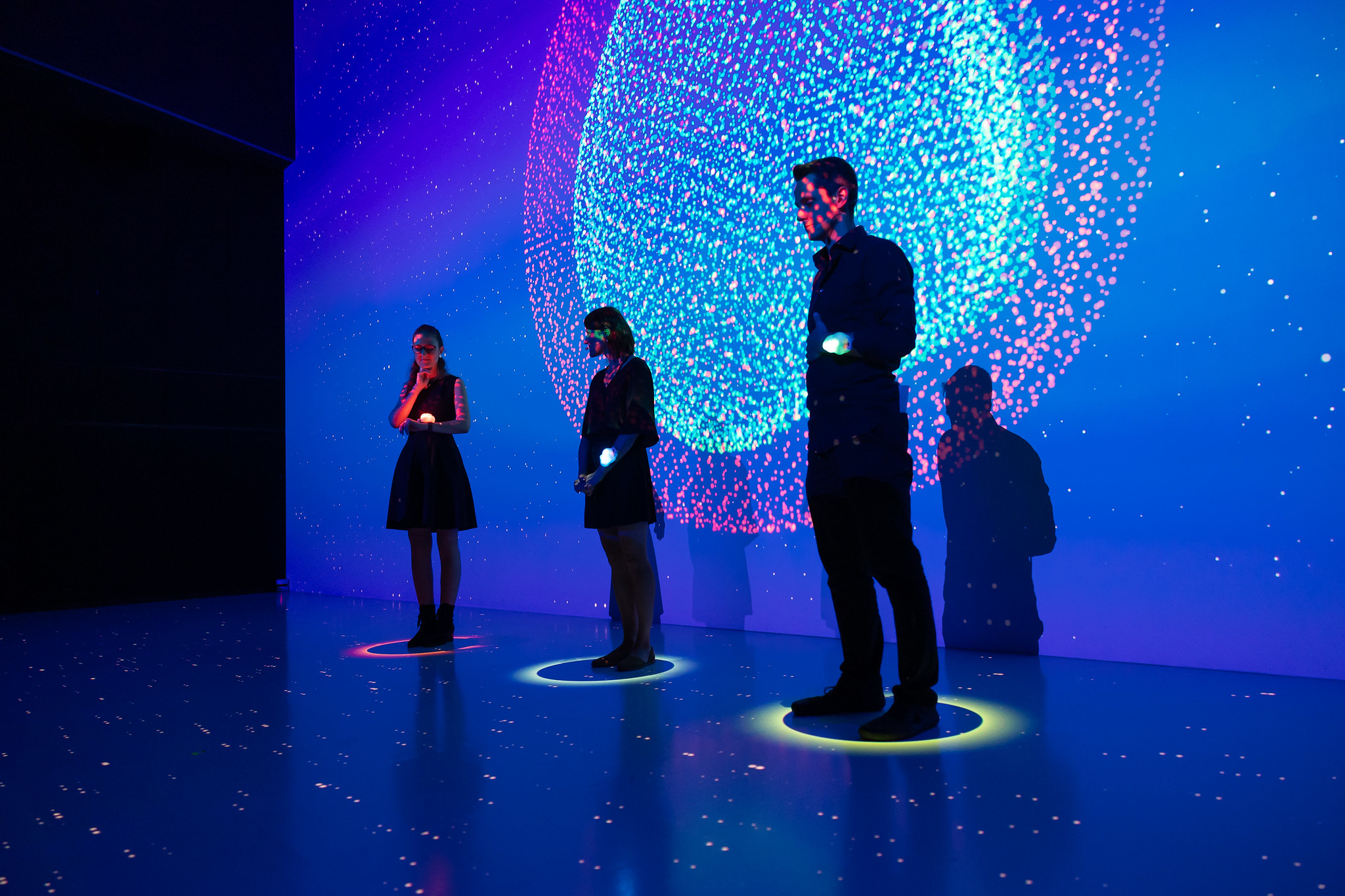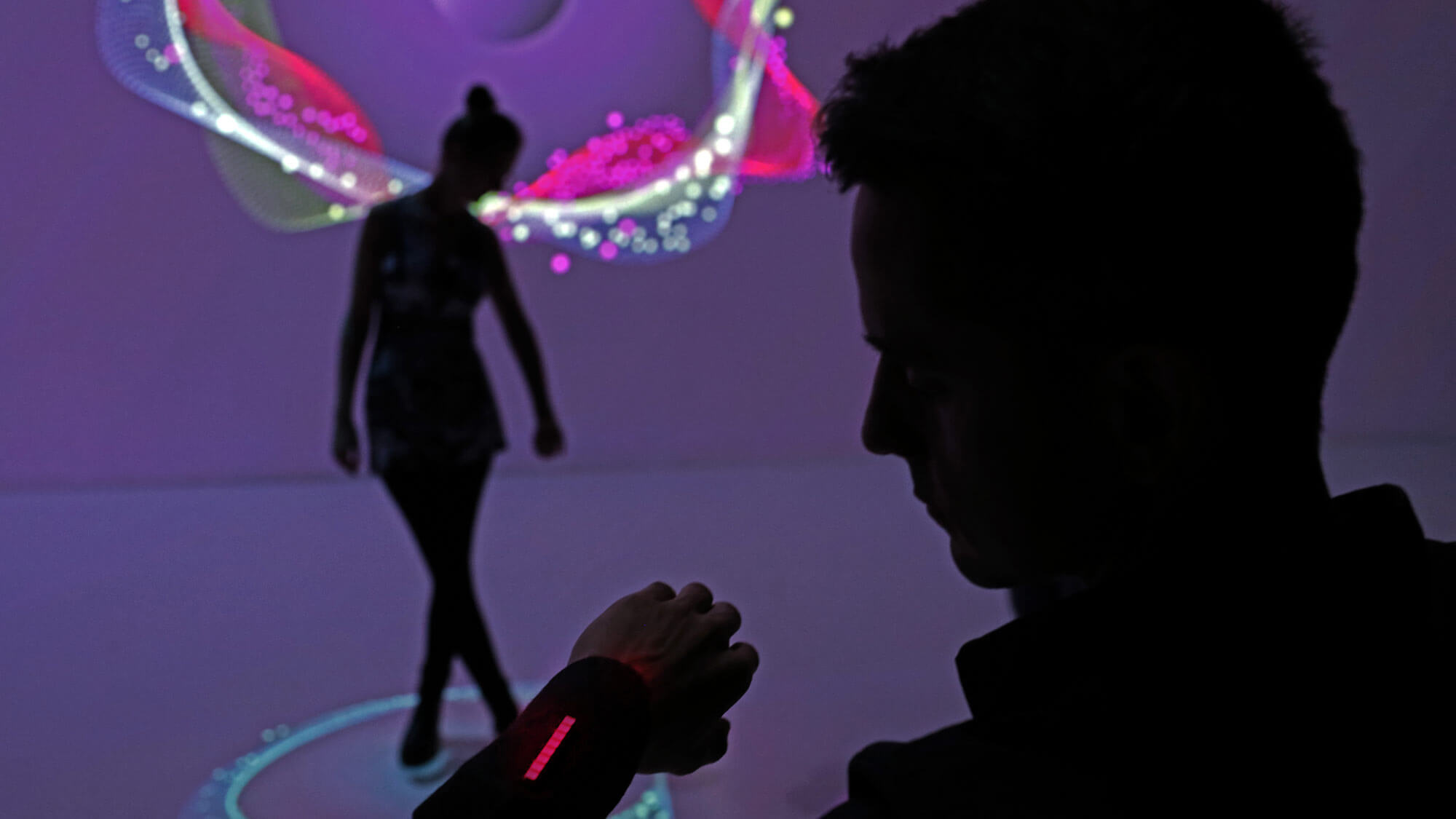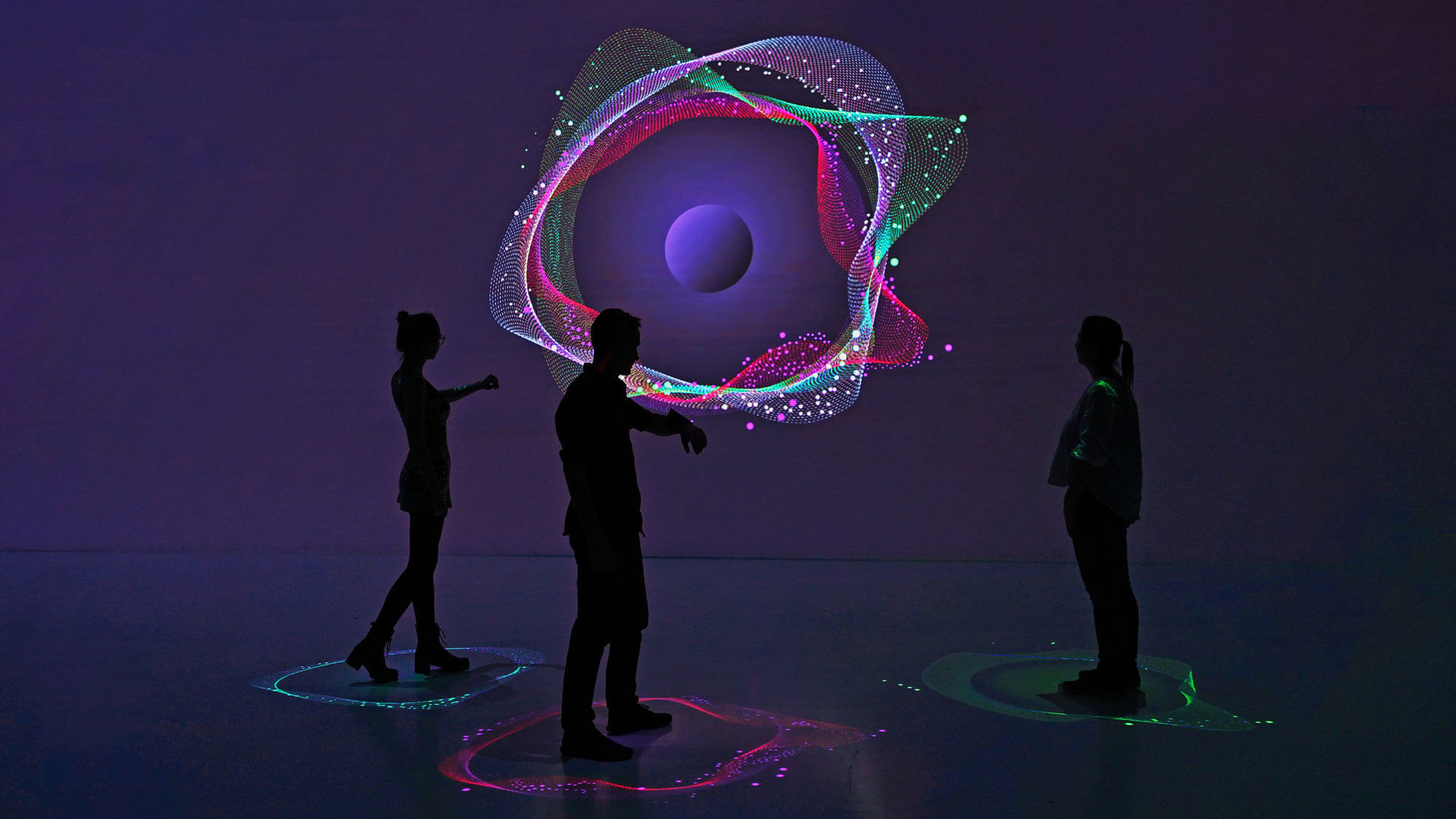Participatory Installation for Self-Exploration at Open Futurelab
Deep Sync creates an interactive playground for sound and visuals, inviting everyone to experiment with the correlation between psychological and physiological processes. Self-exploration as well as group experiences with other curious visitors open up new questions about empathy and human synchronization on an unconscious level. In this way, this Ars Electronica Futurelab’s Ideas Expedition project connects human biological signals with technological and conceptual innovation.
At the center of attention is each person’s heartbeat represented via artistic sonification and visualization. Each heartrate influences the application, resulting in visible and audible changes that have an impact on the individuals as well as the collective state of the group. At the same time, the audiovisuals affect each individual, changing their emotional and physical state. Due to the complex interrelations, the experience is unique and personalized for each visitor constellation.
Besides the performances at the Deep Space 8K, everybody can play with this novel interaction technology in the Open Futurelab area at POSTCITY, to which every visitor has free access even without a festival admission ticket.
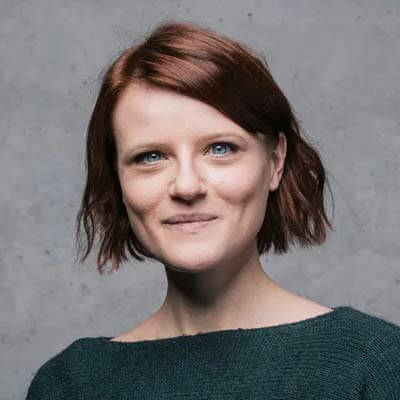
Susanne Kiesenhofer (AT)
Susanne Kiesenhofer joined Ars Electronica Futurelab in 2020 as Researcher & Artist. Working on the verge between design, art and technology has always fascinated and inspired her. Her favourite combination of these disciplines is the conception, design and development of interactive installations.
She completed her bachelor’s degree in Media Technology at the University of Applied Sciences St. Pölten, and her master’s degree in InterMedia at the University of Applied Sciences in Vorarlberg.
She has gained professional experience as designer and developer in Vienna, Dornbirn and Stuttgart.
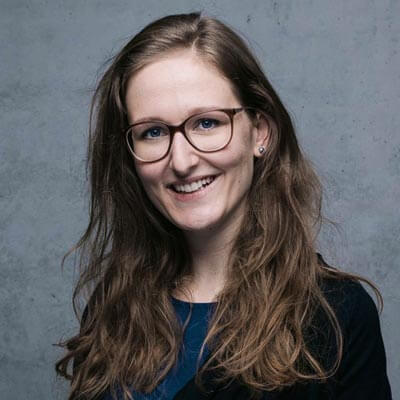
Anna Oelsch (DE/AT)
Working at the edge between science and art has always fascinated Anna. Her scientific thinking and analytical skills were mainly shaped during her studies of Technical Physics at the Johannes Kepler University Linz, whereas her artistic way to approach ideas is currently further developed at the University of Art and Industrial Design Linz studying in the teacher training program for visual arts and physics. Working for the Ars Electronica Futurelab allows her to bundle this varied skill set for project management, creative prototyping, art thinking research, mentorship for artists in residence and much more.
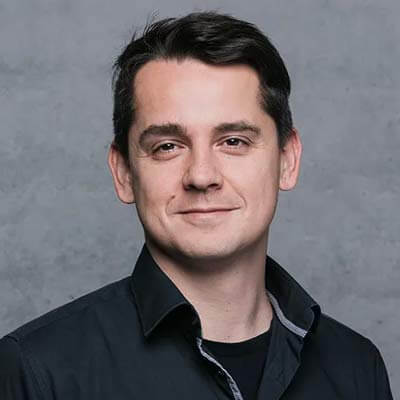
Daniel Rammer (AT)
Daniel joined the Ars Electronica Futurelab in 2018. Since then, his focus has been in the fields of swarm robotics. As a senior researcher, he is developing software solutions around the domain of swarm control systems.
Before Daniel entered the Futurelab he studied Media Technology and Design and Interactive Media. he was also working as an HCI researcher with a focus on playful applications and persuasive games. Earlier in his career, Daniel’s profession was in robotics – programming industrial robots and working with computer vision systems and other technologies in the domain of the automation industries.
Besides professional activities, he is continuously working on various smaller game projects. In this scope, Daniel enjoys working in a broader range of media creation – learning new tools, processes and technologies.
